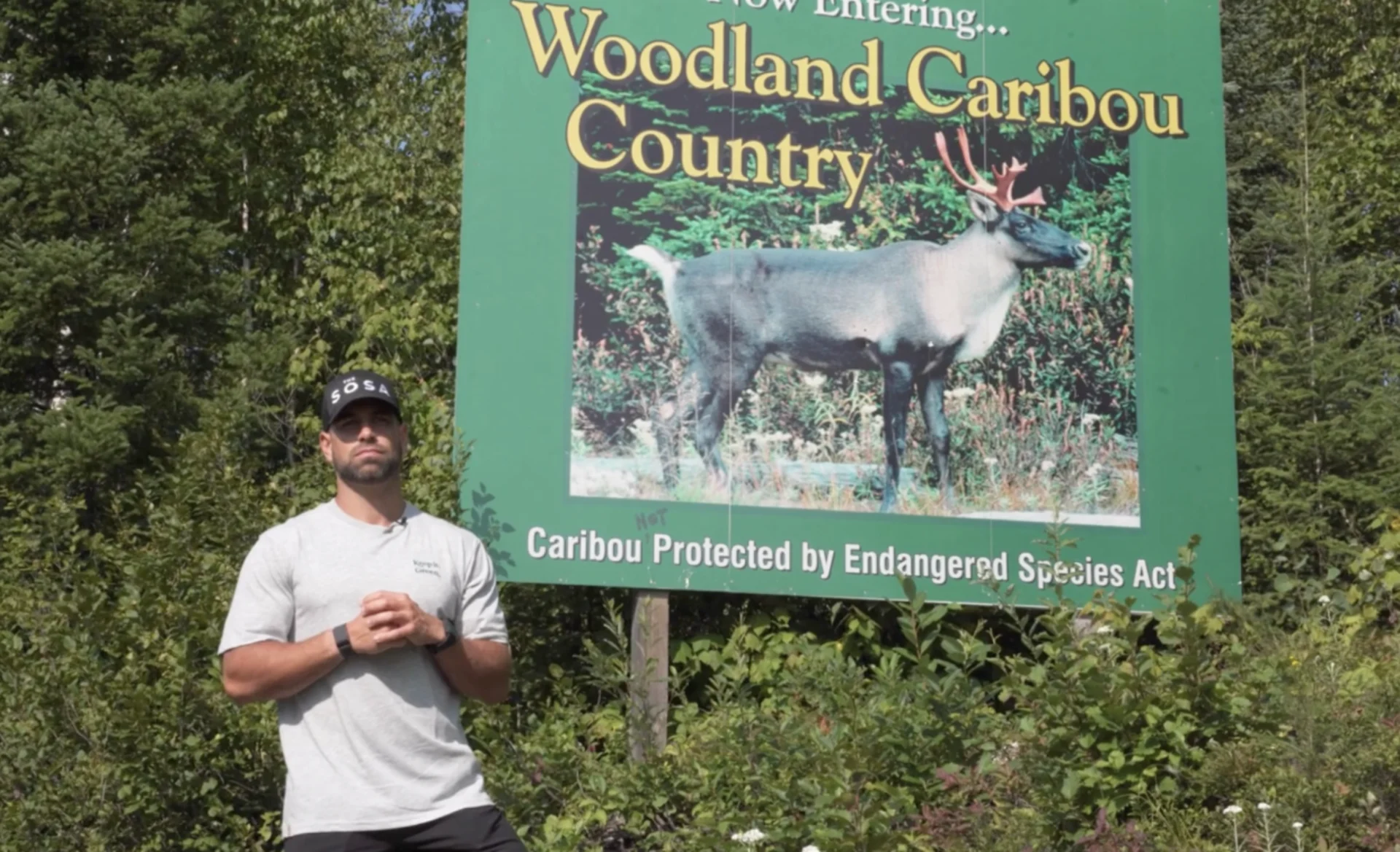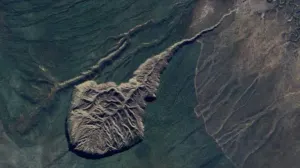
Reality TV star Blake Moynes spearheads campaign to help save Ontario’s caribou
TV personality and conservationist Blake Moynes partners with the David Suzuki Foundation to address declining caribou populations in northern Ontario.
Blake Moynes, a television personality and passionate wildlife conservationist, has teamed up with the David Suzuki Foundation (DSF) to address the alarming habitat loss impacting caribou populations in northern Ontario.
With a background rooted in anti-poaching and animal conservation, Moynes expressed his reasoning for the partnership: "This past summer, I had the opportunity to provide funding to a local organization. The David Suzuki Foundation emerged as a key player, and one of the most pressing projects was addressing the caribou crisis in the region."
Through this partnership, Moynes is focused on bringing attention to the dire state of northern Ontario’s caribou, stressing the urgent need for action to preserve their shrinking habitat.
"To keep it as simple as possible? Caribou populations are significantly declining right now due to habitat destruction, due to forestry, mining, and the exploitation of resources that's essentially been mismanaged here in Canada. So caribou are declining, fading away here in Ontario, but in other places in Canada as well," Moynes added.

Blake Moynes, an Ontario native, is focused on bringing attention to the dire state of northern Ontario’s caribou. (The Weather Network)
SEE ALSO: B.C. group races to save key habitat for grizzly bears and waterfowl
Moynes and the David Suzuki Foundation point to habitat destruction and the creation of logging roads as major contributors to the decline in caribou numbers, which have disrupted natural predator-prey dynamics. In an effort to ensure the survival of the species, the federal government has mandated that provinces protect at least 65% of boreal caribou habitats from industrial development.
"The issue is, is that here in Canada, that's not being done; the Ontario government is not holding up to that standard. And so if there's a policy put in place to protect 65 per cent [of boreal caribou habitats], which only protects 60 per cent probability of caribou being able to sustain the populations that they're at—we're in trouble. You can't break policy; there's a reason that's in place, and the Ontario government is not holding up to the federal government standards. That's why we're pressing to try to get the federal government to step in," Moynes emphasized.
The situation is complex, particularly when it comes to the balance between conservation efforts and economic interests like logging and mining.
Moynes touched on the challenges, noting, "So it's an interesting topic and issue because you have Indigenous communities [in northern Ontario], and some are for the recovery of caribou, and some that are not. And just like me and you, we also need jobs, and forestry does provide jobs, but it's not being done in a manageable or sustainable way. Yes, investment money comes from logging, but the way that it's being done is not setting us up for future success."
The Weather Network reached out to the Ministry of Natural Resources for comment. Their statement highlighted the importance of Ontario's forest sector, stating, "The forest sector is vital to Ontario’s economy—today, it’s a $20.9B industry that provides more than 142,000 direct and indirect jobs in communities across the province. We know that for Ontario’s forest industry to remain strong and vibrant for years to come, we need to ensure that Ontario’s forests remain healthy, diverse, and productive."
The Ministry further acknowledged the significance of protecting boreal caribou habitats while balancing the needs of Northern and Indigenous communities: "Protecting boreal caribou and their habitat, while considering Northern and Indigenous community needs, is important to our government. Our forest management framework, guided by the Crown Forest Sustainability Act, focuses on conserving large, healthy, and diverse forests along with their ecological processes. It also emphasizes maintaining forest health by mimicking natural disturbances and patterns."
The Ministry of the Environment, Conservation, and Parks (MECP) also commented, reaffirming that boreal caribou are classified as a threatened species under Ontario’s Endangered Species Act, which provides both species and habitat protection. In their statement, they noted, "The province has been a leader in Canada in establishing species at risk legislation and developing a comprehensive policy framework for boreal caribou protection and recovery and is continuing to implement its caribou policy. We recognize that caribou conservation and recovery is a long-term and continuous effort."

The boreal population of caribou was already assessed as threatened when the Endangered Species Act took effect in 2008. (Stock photo of Boreal woodland caribou courtesy Getty Images/mirceax).
MECP also shared that under Conservation Measure 2.2, they are exploring ways to enhance boreal caribou protections through potential expansions of Missinaibi Provincial Park and Woodland Caribou Provincial Park. The Ministry is finalizing details and will consult with the public and Indigenous communities before proceeding with regulation on these park expansions.
Moynes and the DSF continue to push for public awareness and action on caribou conservation, urging Ontarians to support their petition.
"I think a lot of times, as individuals, we can feel alone. So collectively, getting on this petition with the David Suzuki Foundation makes us that much more powerful and strong. Collectively, you can do so much more," Moynes encouraged.
According to recent estimates from MECP, there are roughly 5,000 boreal caribou remaining in Ontario, based on aerial and ground surveys along with accumulated knowledge.










